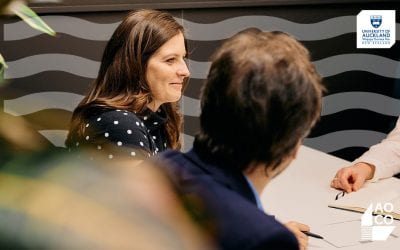Master of Engineering Project Management (Online)
Solve real-world problems and advance your engineering career with our globally recognised Master of Engineering Project Management. Talk to an AdvisorApply NowMaster of Engineering Project Management (Online)
Solve real-world problems and advance your engineering career with our globally recognised Master of Engineering Project Management. Talk to an AdvisorApply NowFACULTY OF ENGINEERING AND DESIGN
MEPM
Ready to Lead? Master your Engineering career with a globally recognised Project Management qualification
The Master of Engineering Project Management is a flexible programme designed to equip you with the skills and knowledge you need to become a confident and successful project leader, both in New Zealand and internationally.
Choose from a range of electives according to your special interests and career aspirations and gain hands-on experience through a research or capstone project to gain local industry project management experience with a leading New Zealand company.
Entry Requirements
120-point MEPM:
A Bachelor of Engineering, or a Bachelor of Engineering (Honours), or a relevant Bachelor (Honours), or a relevant Postgraduate Diploma with a GPA of 4.0.
AND 2-years of relevant work experience.
180-point MEPM:
A relevant bachelors degree with a GPA of 4.0
AND 2-years relevant work experience
Duration
120-point MEPM: 2-years (part-time)
180-point MEPM: 3-years (part-time)
Next Start Dates
2025
Semester 1:
3 March (Applications close 17 February)
Semester 2:
21 July (Applications close 7 July)
Full Programme Fees*
Why is this programme right for you?
The Master of Engineering Project Management is a flexible programme which can be tailored to suit your career goals. Choose from a range of electives according to your special interest areas, plus complete a research or capstone project to gain local industry project management experience.
This programme is suitable for students who wish to solidify their experience with a formal postgraduate qualification, or to move from functional engineering into project management positions, including internationally.
 The Master of Engineering Project Management is New Zealand’s only accredited programme that will fulfil the study hour and content requirements for the PMI’s Project Management Professional (PMP) certification. This globally-recognised qualification will open doors at major engineering firms worldwide.
The Master of Engineering Project Management is New Zealand’s only accredited programme that will fulfil the study hour and content requirements for the PMI’s Project Management Professional (PMP) certification. This globally-recognised qualification will open doors at major engineering firms worldwide.
Apply now and take the first step towards becoming a leader in project management.
What are the key benefits?
1. Global learning, Local Impact:
Our online programme allows you to study at your own pace, making it ideal for busy professionals. Access high-quality course materials and engage with expert faculty from anywhere in the world, with unparalleled online student support every step of the way.
2. Hands-on Project Management Experience:
Solve real-world problems and gain industry contacts through a capstone project, or work alongside our renowned academics to complete an industry-embedded research project. Our partnerships with major NZ companies give our students the unique opportunity to solve existing engineering problems and build valuable industry networks and experience.
3. Accredited by the Project Management Institute (PMI):
The Master of Engineering Project Management is New Zealand’s only accredited programme that will fulfil the study hour and content requirements for the PMI’s Project Management Professional (PMP) certification. This globally-recognised qualification will open doors at major engineering firms worldwide.
4. Learn from Top Academics and Industry Experts:
Learn from a team of leading academics and seasoned industry experts. Enhance your knowledge through exclusive guest lectures, optional live sessions and supervised assignments. Leverage networking opportunities with experienced professionals and industry leaders to propel your career towards success.
Programme Structure
The 120-point MEPM programme consists of 5 courses, and the 180-point MEPM programme comprises 9 courses. There may be flexibility in available courses at the discretion of the Programme Director.
Courses Required for 120-point MEPM
To complete the 120-point MEPM programme, you will take:
- 15 points: ENGGEN 736
- 15 points: ENGGEN 730
- 30 points: Either ENGGEN 731 and 742, or ENGGEN 740
- 30 points from ENGGEN 705, 732-735, 737-739, 741, 743, ENGSCI 755, ENVENG 702, other 600 and 700 level courses in the Faculty of Engineering approved by the Programme Director
- 30 points: ENGGEN 792 or 794 Research Project
or
- 30 points: ENGGEN 784
- 15 points from ENGGEN 737-739
- 15 points: ENGGEN 730
- 30 points: Either ENGGEN 731 and 742, or ENGGEN 740
- 30 points from ENGGEN 705, 732-735, 737-739, 741, 743, ENGSCI 755, ENVENG 702, other 600 and 700 level courses in the Faculty of Engineering approved by the Programme Director
Courses Required for 180-point MEPM
To complete the 180-point MEPM programme, you will take:
- 15 points: ENGGEN 736
- 15 points: ENGGEN 730
- 30 points: Either ENGGEN 731 and 742, or ENGGEN 740
- 90 points from ENGGEN 705, 732-735, 737-739, 741, 743, 769, ENGSCI 755, ENVENG 702, other 600 and 700 level courses in the Faculty of Engineering approved by the Programme Director
- 30 points: ENGGEN 792 or 794 Research Project
or
- 30 points: ENGGEN 784
- 15 points from ENGGEN 737-739
- 15 points: ENGGEN 730
- 30 points: Either ENGGEN 731 and 742, or ENGGEN 740
- 90 points from ENGGEN 705, 732-735, 737-739, 741, 743, ENGSCI 755, ENVENG 702, other 600 and 700 level courses in the Faculty of Engineering approved by the Programme Director
Course Descriptions
Each course runs for 12 weeks, allowing you to complete the 120-point MEPM in only 2-years and the 180-point MEPM in only 3-years.
ENGGEN 730 - Professional Skills
15 points
Core theories and their implications for the art and practice of project management in organisations.
ENGGEN 734 - Engineering Contracts for Project Managers
15 points
Theoretical concepts in engineering commercial contracts, how those concepts apply to the work environment and manifest in the contracts in use in the project environment. Students will study relevant case law, NZS3910, NEC3 and FIDIC.
ENGGEN 736 - Research Implementation and Dissemination
15 points (ENGGEN 736 is a co-requisite to ENGGEN 794B)
Critical reflections on undertaking a research project focussing on elements of project implementation and dissemination of research findings and outcomes. Leverage the benefits of the research project by focussing on the communicating the findings of the project to appropriate audiences and maximising the impact of the project for key stakeholders. Critically evaluate own performance in undertaking a project and adoption of a philosophy of continuous improvement during implementation stage of a project. Identification of lessons learned in order to inform future research.
ENGGEN 737 - Engineering Risk Management
15 points
A broad based understanding of the critical elements of risk and risk management within the construction and engineering industry. Key elements include risk identification with regard to the forms and types of risk inherent in construction. Risk analysis tools and techniques for the construction engineer, and risk response. Risk monitoring techniques, risk control and transference of risk methods. Risk within procurement, insurance issues and risk attenuation.
ENGGEN 738 - Work Based Learning
15 points
Studies in professional and interpersonal skills within the context of engineering and project management practice. Develops ability to critically self-assess competencies. Fosters and enhances competencies in preparation towards membership of a professional body via application of theory and exploration of work practices. Students prepare a portfolio of independent work demonstrating competencies required of a Chartered professional at an advanced level.
ENGGEN 740 - Project Management Bodies of Knowledge
30 points
Comprehensive and critical review of existing and emerging project management bodies of knowledge including Waterfall, Agile, Lean and Extreme Project Management approaches. Comparison of a range of project management frameworks and methodologies for management of risk, including the applied application of a range of tools, techniques and knowledge to open-ended project scenarios.
ENGGEN 741 - Project, Programme and Portfolio Management
Project, Programme and Portfolio Management frameworks and their practical application to organisations in managing strategy implementation. Examination of examples from industry to show how theoretical concepts relate to the success or failure of projects, programmes and portfolios under conditions of uncertainty and ambiguity. Students will study a range of case studies from across the world that highlight critical success factors.
ENGGEN 742 - Project Management
15 points
Planning, organisation and control of projects in ordered environments. Application of project management principles, concepts, disciplines, tools, techniques and processes to the typical project lifecycle. Studies in the knowledge areas/domains defined by the Project Management Institute (PMI). Development of a range of skills, tools and techniques to become an effective project manager.
ENGGEN 743 - Applied Creative Thinking
15 points
Application of inventive problem solving and creative thinking to formulate novel engineering solutions. Theories, tools and techniques to assist with generating innovative ideas. Techniques for improving the creativity of teams. Develops skills in the facilitation of workshops to help teams solve complex problems. Practical application of the concepts are synthesised to solve case study industry problems, and students’ individual scenarios.
ENGGEN 769 (180 only) - Research Methods for Engineers
15 points
Development of research methods knowledge and skills including research philosophy and design, research ethics, data collection and analysis techniques, identification of limitations, and writing up and reporting. Qualitative and quantitative research methods are addressed.
ENGGEN 784 - Capstone Project
30 points
An extensive team-based project within a virtual or real-world organisation, where students will apply highly specialised theories, frameworks, and tools to analyse complex problems and develop practical solutions to industry standards. Students will formulate plans, reports, and deliver presentations that convey their findings and facilitate critical reflective analysis of their learning experiences throughout the project.
ENGGEN 794 (A/B) - Research Project
30 points
A research project which requires a student to undertake a practical application in a temporary endeavour to deliver a product, service or specified outcome. May take the form of action research, project implementation and evaluation of modern advances in project management practices, or a project management oriented case study. Project will be conducted by students working individually within an existing project orientated team.
ENVENG 702 - Engineering Decision Making in Aotearoa
15 points
Advanced systems engineering based decision making; complex problem framing including ontology analysis; cultural opportunity mapping; absolute sustainability analysis; risk threshold determination; temporal cumulative effects; and effective consultation. Independent research is undertaken to solve a complex engineering decision making problem.
Master of Engineering Project Management – Enquire Now
* indicates a required field
What Scholarships Am I Eligible For With 100% Online Study?
If you’re feeling stuck in your job or you’re simply looking for a new challenge, a career change can shake things up and find your passion. But before you make the leap, here are a few things you need to think about!
How to Get Employer Funding for 100% Online Postgraduate Programmes & Courses
If you’re feeling stuck in your job or you’re simply looking for a new challenge, a career change can shake things up and find your passion. But before you make the leap, here are a few things you need to think about! We explore the reasons why employers should sponsor their employees’ postgraduate study and how employees can secure funding from their employers.
What Types of Student Loans Am I Eligible For With 100% Online Study?
Embarking on postgraduate study can be a big decision, with personal finances to take into consideration. You could be eligible for a student loan via Studylink if you enrol in an Auckland Online programmes.




